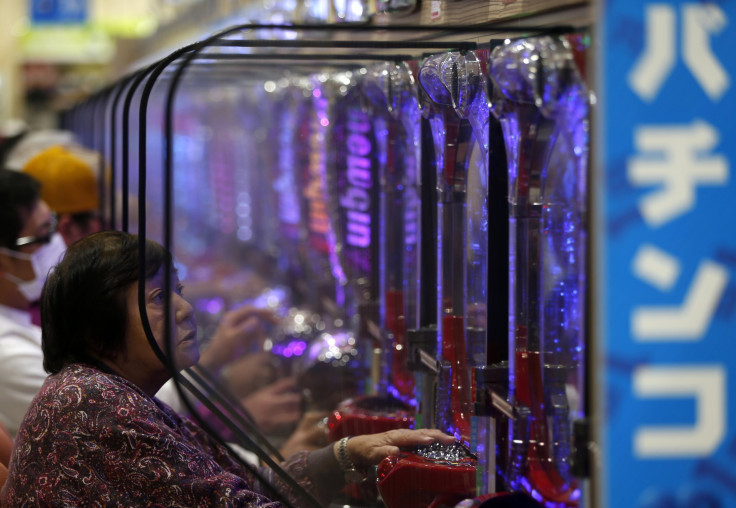Japan's Surprise Slip Into Recession Could Delay Recovery, Next Tax Hike; Jeopardizes 'Abenomics'

Japan, on Monday, reported an unexpected slowdown in growth for the second consecutive quarter, marking a decline into recession for the world’s third-largest economy, and clouding the global economic outlook. The contraction in the country’s gross domestic product (GDP) in the September quarter has also muddled the political landscape in Japan as it is likely to affect Prime Minister Shinzo Abe’s decision to call snap elections later this week.
Monday’s dismal growth figures, showing a 1.6 percent fall in GDP after a 7.3 percent contraction in the previous quarter, have cast doubts over the effectiveness of Abe’s much-touted “Abenomics” revival plan for Japan’s economy, according to media reports. The recession is believed to have been caused largely by a 3 percent sales tax hike in April, which drastically hurt domestic consumer spending.
“April’s sales tax completely destroyed Japan’s economy -- no part of Japan’s economy looks encouraging," Yoshiki Shinke, chief economist at the Tokyo-based Dai-ichi Life Research Institute, told Bloomberg. “Today’s data will leave another traumatic memory for Japanese politicians about sales tax hikes.”
The GDP figure has also triggered speculation that Abe will postpone the next tax increase -- initially planned for October 2015 -- until 2017, and call for early elections to get public support for his move, according to media reports.
“In light of the sharp fall in today’s preliminary estimate, it now looks likely that PM Abe will call off the hike and announce snap elections,” Marcel Thieliant of Capital Economics said, according to the Guardian.
However, a postponement of the tax hike is likely to hinder attempts by Abe's government to cut its public debt, which is currently more than twice the size of the economy -- the largest among developed nations.
Moreover, a massive quantitative easing program, or economic stimulus, implemented by the Bank of Japan, intended to end a two-decade long deflationary spiral, has failed to produce the desired results as consumer spending rose by just 0.4 percent in the third quarter. The steep tax hike largely offset the government’s stimulus measures and, as a result, corporate capital investment also sank 0.9 percent.
Junko Nishioka, an economist at RBS Japan Securities, told The Associated Press that following the release of the latest figures, Abe could be expected to announce an additional stimulus package of about 3 trillion yen to 4 trillion yen ($26 billion to $35 billion) for low-income families and companies relying on imports, which have been hit by a weakening yen.
RIPPLE EFFECT
Monday’s announcement is also bad news for the Chinese economy as well as struggling euro zone countries. The slowdown in Japan could drag on growth in these economies if Japanese companies hold back on foreign investment, and if manufacturers and consumers reduce purchase of imports.
On Sunday, before Japan reported GDP data, British Prime Minister David Cameron wrote in a column for the Guardian: "Six years on from the financial crash that brought the world to its knees, red warning lights are once again flashing on the dashboard of the global economy."
Later on Monday, Mario Draghi, president of the European Central Bank, is scheduled to speak and markets worldwide will pay attention for insights into the region's economic future.
MARKET REACTIONS
Following the announcement of the GDP figures, the Japanese yen initially swung to a seven-year low of 117 against the dollar before settling at 115.64. The Nikkei 225 index witnessed its biggest one-day slump to fall nearly 3 percent to 16,973.80 -- its lowest level since Nov. 10.
In Europe, stocks were hit by Japan's growth data as the main European indices dropped at the start of trading on Monday. London's FTSE 100 dropped 0.37 percent, while Germany's DAX fell 0.69 percent in early trade, while stocks in France and Italy too suffered early hits. The Shanghai Composite index was down 0.19 percent while Hong Kong's Hang Seng dropped 1.21 percent.
© Copyright IBTimes 2024. All rights reserved.





















